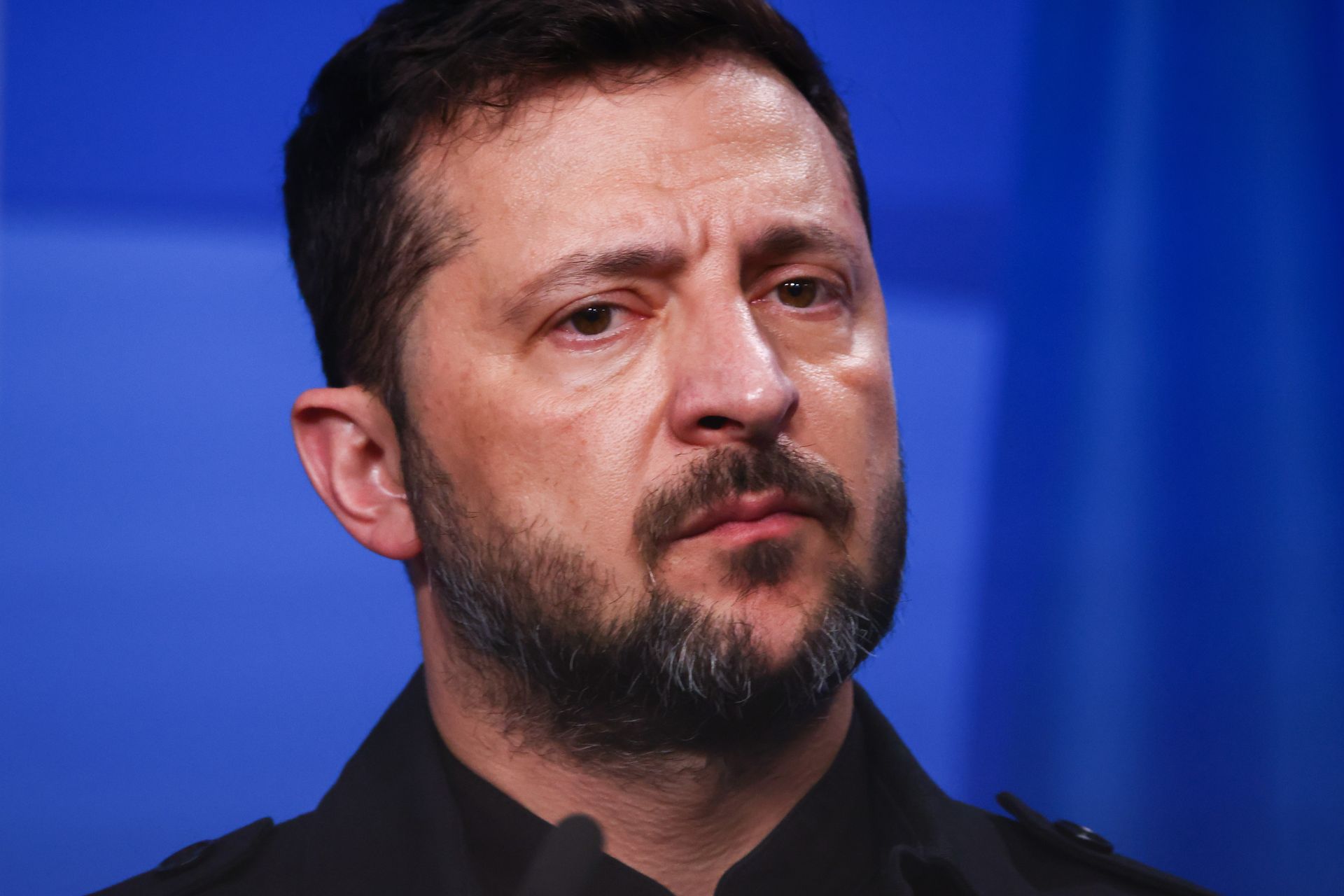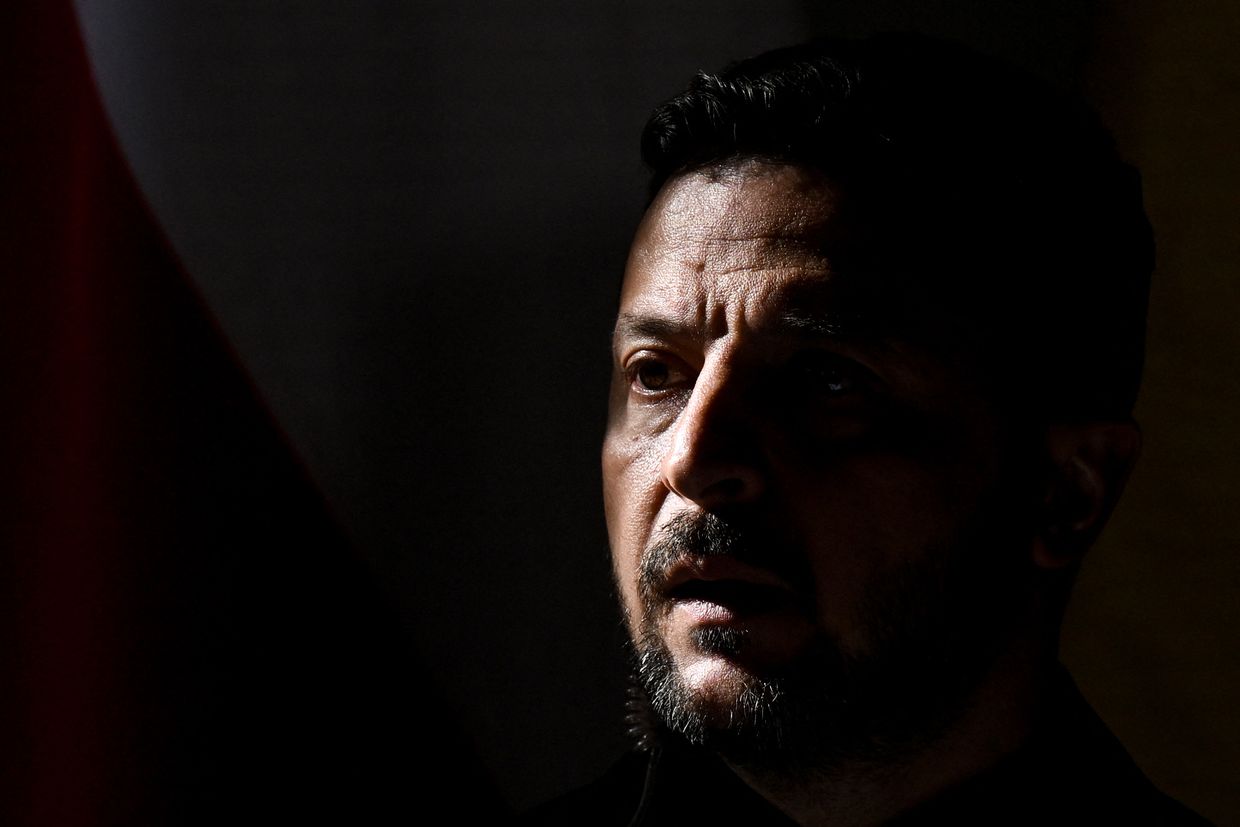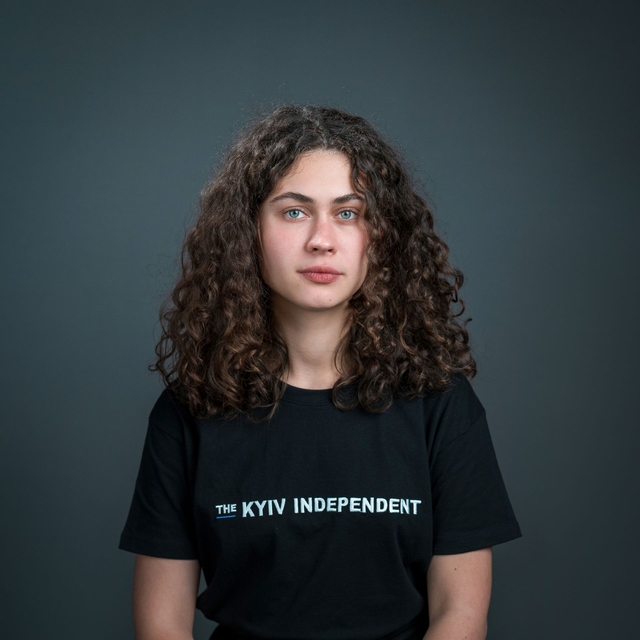‘A fatal mistake’ — Ukrainian soldiers slam Zelensky’s anti-corruption crackdown

Ukrainian soldiers in Dnipropetrovsk Oblast, Ukraine, on June 14, 2025, amid the Russian invasion of Ukraine. (Florent Vergnes / AFP via Getty Images)
Editor’s Note: Some Ukrainian soldiers in this article asked to be identified only by their first name or callsign, citing fears of possible repercussions for speaking to the press about a sensitive topic.
Even for Ukrainian soldiers locked in brutal warfare hundreds of kilometers from the capital, President Volodymyr Zelensky’s move to dismantle the country’s anti-corruption infrastructure built over the past decade felt like a blow.
Zelensky signed a controversial bill destroying the independence of the National Anti-Corruption Bureau (NABU) and the Special Anti-Corruption Prosecutor's Office (SAPO) on the evening of July 23, as protests warning him against this decision emerged in major Ukrainian cities. The bill, which parliament passed hours prior — and unusually quickly — would make the two major anti-corruption institutions subordinate to the Prosecutor General, who is nominated by the president.
Opposition lawmakers and activists have warned that this would hinder the agencies’ ability to investigate high-level officials without presidential approval.
“I think (Zelensky’s) government has just shown its true face once again, which we have seen since 2019,” a 32-year-old drone operator, who goes by the callsign “Architect,” told the Kyiv Independent.
“It’s just that the war has shifted our focus.”
For Architect and many other Ukrainian soldiers who vividly remember the 2013-2014 EuroMaidan Revolution, which ousted the former pro-Kremlin President Viktor Yanukovych and brought on pro-Western reforms, including the birth of NABU and SAPO a year later, what happened on July 22 was too familiar. Architect was a college student then, organizing protests in Lviv where he studied.
While some soldiers argued that the two agencies never had true autonomy in practice to investigate top officials due to pressure from above, critics say Zelensky’s step essentially killed Ukraine’s fight against corruption and obstructed the country's hopes of EU integration in the future.
Reacting to the mounting public outrage after thousands of Ukrainians took to the streets on July 23, Zelensky backed his decision by saying that it was needed to “cleanse” Russian influence.


Critics have argued that Russian agents could work at any government agency — and there are grounds to look for them and investigate them — but it’s not a valid reason for destroying institutions.
Echoing concerns of some Ukrainian soldiers who spoke to the Kyiv Independent, who felt betrayed by their president, Architect accused the authorities of wanting to “create their own little Russia here” in a way that reminded him of Yanukovych.
“But this is (Ukraine), not Russia,” Architect said.
“(The Ukrainian authorities) will not succeed.”
An unknown number of Ukrainian soldiers have already fallen defending the country while fighting for the future of democratic Ukraine. The D.C.-based Center for Strategic and International Studies’ June report put Ukraine’s estimated death toll on the battlefield between 60,000 and 100,000, but Kyiv hasn’t released its own casualty count.
“Ukrainians are dying every day for a country where there must be justice and the rule of law.”
Petro Kuzyk, a battalion commander with the National Guard of Ukraine, believes that democracy in Ukraine is now being fought for by Ukrainian infantrymen, who are holding onto their positions despite the ammunition shortage, rather than the government officials who he believes want “to score political points for themselves.”
Condemning the swift move as “a fatal mistake of the authorities,” Kuzyk said he worries that abolishing the independence of the anti-corruption institutions could give the government additional opportunities to repress undesirable opposition.
“The most disgusting thing is that, against the background of a large number of corruption scandals involving government representatives, this looks like an attempt, very primitive, to settle and legalize the assets that they stole from the Ukrainian people,” Kuzyk told the Kyiv Independent.

A deputy company commander with the 80th Air Assault Brigade, who goes by the callsign “Third,” said he was concerned that the controversial step may be “a distraction from completely different events” against Ukraine happening in the foreign policy arena, such as peace negotiations.
The Ukrainian and Russian delegations are meeting in Istanbul on July 23 for the third round of the peace talks, which have yielded minor progress since they began in May.
Third, who is from the city of Donetsk, which has been occupied by Russia since 2014, is concerned about the outcome of the peace talks. The soldier also stressed that internal instability ultimately plays into Russia’s hands.
“Our weakness as a society and as state institutions is the strength of our enemy,” he said.

The Ukrainian soldiers who spoke to the Kyiv Independent said they would continue fighting regardless of the future developments in the capital.
A 31-year-old drone operator who goes by the callsign “Crimea,” the name of his home, occupied by Russia since 2014, said Zelensky’s decision to strip independence of the anti-corruption institutions doesn’t affect his motivation to keep fighting.
“We are standing up not for the sake of the NABU or anyone else, but for the sake of our land, which (Russian troops) are trying to take away from us,” Crimea told the Kyiv Independent.
“Ukrainians are dying every day for a country where there must be justice and the rule of law,” a 46-year-old infantryman who took part in the Euromaidan Revolution and goes by the callsign “Mamai,” told the Kyiv Independent.
“The dismantling of NABU and SAPO feels like a betrayal of that hope.”













